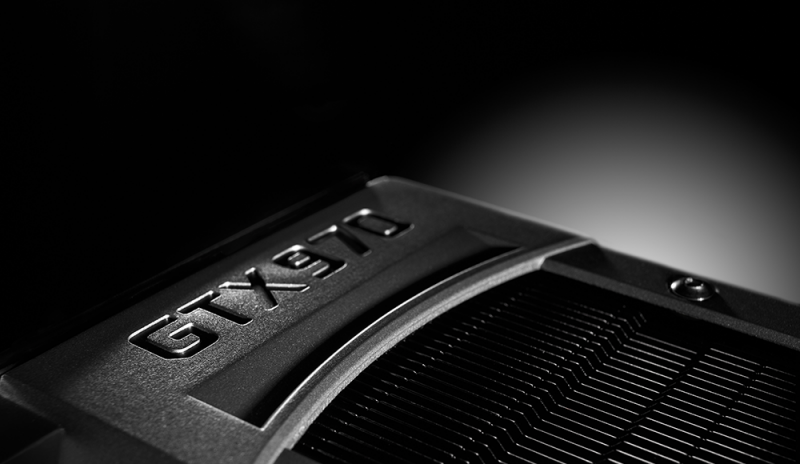
Over the past few days it has emerged that the Nvidia GeForce GTX 970 might have a few issues addressing the entirety of its 4GB of VRAM. Posters on several enthusiast forums have been testing the card, and noticed that in some games it hits what appears to be a memory cap of 3.5 GB, leaving the last 512 MB empty even when the title may require it.
Furthermore, a synthetic benchmark was being used to test the memory bandwidth of each segment of the GTX 970's memory, and found that bandwidth dropped off significantly when the last 512 MB of the VRAM was being accessed. These issues were not present with the GTX 980, which features a fully-enabled GM204 core.
Some users were attributing micro-stutter while gaming in memory-intensive games to these VRAM issues. Others didn't notice any performance problems, and had no trouble getting games to use all of the card's 4 GB of memory. Now, Nvidia is offering up an explanation.
The GeForce GTX 970 is equipped with 4GB of dedicated graphics memory. However the 970 has a different configuration of SMs than the 980, and fewer crossbar resources to the memory system. To optimally manage memory traffic in this configuration, we segment graphics memory into a 3.5GB section and a 0.5GB section. The GPU has higher priority access to the 3.5GB section. When a game needs less than 3.5GB of video memory per draw command then it will only access the first partition, and 3rd party applications that measure memory usage will report 3.5GB of memory in use on GTX 970, but may report more for GTX 980 if there is more memory used by other commands. When a game requires more than 3.5GB of memory then we use both segments.
The statement goes on to compare the performance of a GTX 970 to a GTX 980 in memory intensive applications.
| Game and Settings | GTX 980 | GTX 970 |
| Shadows of Mordor | ||
| <3.5GB setting = 2688x1512 Very High | 72fps | 60fps |
| >3.5GB setting = 3456x1944 | 55fps (-24%) | 45fps (-25%) |
| Battlefield 4 | ||
| <3.5GB setting = 3840x2160 2xMSAA | 36fps | 30fps |
| >3.5GB setting = 3840x2160 135% res | 19fps (-47%) | 15fps (-50%) |
| Call of Duty: Advanced Warfare | ||
| <3.5GB setting = 3840x2160 FSMAA T2x, Supersampling off | 82fps | 71fps |
| >3.5GB setting = 3840x2160 FSMAA T2x, Supersampling on | 48fps (-41%) | 40fps (-44%) |
According to their performance data, there is very little difference in performance between the GTX 970 and GTX 980 when the last 512 MB of memory has been allocated, despite the differences in their memory systems. This last 512 MB is the portion of memory that was supposed to be cripplingly slow, or even unavailable to some users.
Of course Nvidia's data might not be telling the full story, and there definitely could be some issues related to the paritioning of VRAM, most notably stuttering which is not conveyed in average frame rate figures. We'll have to wait until someone does a full frame time analysis before the issue can be explored further.
https://www.techspot.com/news/59509-geforce-gtx-970-memory-allocation-issue-explained.html